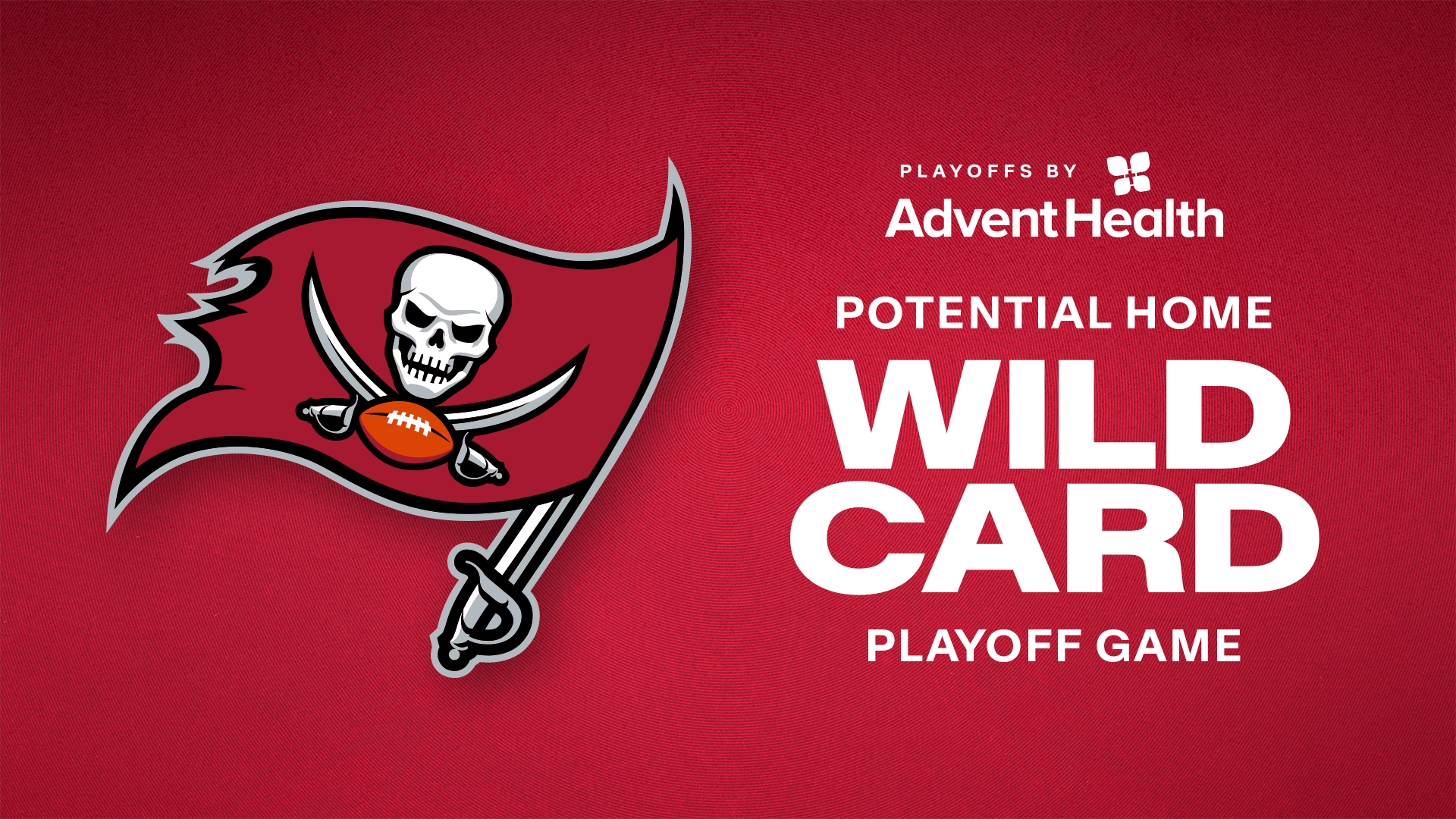- Is it better to have a single 100-yard rusher or two 50-yard rushers in the same game?
- The Bucs' chronological list of first wins in various cities holds some real surprises
- Tampa Bay's defense was known for negative plays in the running game last year, and that could be true again in 2014
Statistics can help illuminate the game of football…or they can take us down a misleading path. As Tampa Bay Buccaneers Head Coach Lovie Smith said: "I believe in stats, but it's [which] stats."
Smith, for instance, doesn't pay much attention to the NFL's defensive rankings, since they are based on yards, which he considers a meaningless measure. When he shares defensive stats with his team, he focuses on points allowed, takeaways, scoring on defense and red zone proficiency.
Here on Buccaneers.com, we unabashedly love stats, but we also understand the need to wield them wisely. Sometimes, we can get a better feel for why the team is performing as it is by going a little deeper into the numbers. And sometimes we can simply point out something we consider interesting, and hope you will find it interesting as well.
That's our goal with Football Geekery. Each week, we're going to give you a sampling of statistical and or historical analysis, hopefully in a way that is relevant to the Buccaneers' current state of affairs. This week we start with a look at games in which two running backs put up good numbers, and what that means for the Bucs' chances for victory. We also take a chronological walk through the Bucs' first victory in every opposing city and check in on a stat that was a team strength last year – run stuffs. Let's get started.
**
1. 50-50 Splits
On Sunday, the Buccaneers will take on a Pittsburgh Steelers team that is coming off a 264-yard rushing performance against Carolina. Most of those yards were gained by Le'Veon Bell (147) and LeGarrette Blount (110), who became the first pair of Steeler backs to crack 100 yards in the same game in almost 30 years.
That feat has been pulled off just once in team history, not surprisingly by the Thunder & Lightning duo of Mike Alstott and Warrick Dunn. Alstott had 128 rushing yards and Dunn 115 against Minnesota on November 1, 1998. Also not surprisingly, the Buccaneers won that game, and while it wasn't a blowout like the Steelers' 37-19 decision against the Panthers, it was the only regular-season game the Vikings lost that season.
So the Buccaneers are 1-0 all-time when they have two 100-yard rushers in the same game. Good to know…and let's see if we can get that information to Doug Martin and Bobby Rainey before Sunday's game.
Ah, but what if we lower the threshold a little bit so we have more samples to consider? Actually, let's cut that threshold in half; two teammates with at least 50 rushing yards in a game certainly seems like the beginning of a successful day in the ground game. Is it also predictive of victory? Let's see.
My first reaction to this new list of Buccaneer games – one in which two different players had at least 50 rushing yards – is that it's quite a bit longer than I expected. There are 62 such games in franchise history, or about two per season. The next thing I notice is that they were more common in the earlier days of the franchise, which does jibe with the obvious shift to a more passing-centric league over the last four decades. There were 16 such occurrences in the first six years of franchise play, including four in 1978 and five in 1979. Ricky Bell and Jerry Eckwood were a very potent combo in '79, accounting for all of those paired 50-yard games. There were a lot of these games in 1988, strangely, and a lot of them in 1998, not so strangely (again, Thunder & Lightning). There have only been five such games since 2009, which is five seasons plus three games, and only one since 2011.
You will probably not be surprised to learn that the Bucs often win when they get two runners over 50 yards. They won 41 of those 62 games, for a success rate of .661. Interestingly, it seems to be a better harbinger of victory in more recent years. If you were to choose the arrival of Tony Dungy in 1996 as a cutoff point – and it works out pretty neatly since there were 20 Buc seasons before that and there have been 19 (counting 2014) since, you'll find a pretty big difference. The Bucs were only 16-14 (.533) in such games from 1976-95, but they have gone 25-7 (.782) since. Wow.

RB Doug Martin's likely return to action on Sunday increases the Bucs' chances of having two 50-yard rushers in the same game
I should also note that in 10 of those 62 games, one of the 50-yard rushers was a quarterback. The Bucs are only 3-7 in such games, so if you remove them from the equation and just focus on RB combos, then the winning percentage goes up to .731. For the remainder of the analysis, however, I'm going to leave those 10 games in.
Of course, once you get two players to 50-50, you get greedy and want more. Just like a 20-20 player in baseball (homers and steals) is nice but 30-30 is a real difference-maker and 40-40 is a superstar, you'd rather have a 100-100 game than a 50-50 game. However, as we know, those are rare, so let's look at the winning percentages as we go incrementally up from 50-50 to 100-100.
For this, we really only need to look at the lower of the two players. That is, two players that go for 80 yards and 50 yards, respectively, form a 50-50 pair (both have at least 50), while two players that go for 70 and 60 would be a 60-60 pair. Now a 60-60 pair is obviously also a 50-50 pair, but for this exercise, we're going to break them up and not count any games in the higher groupings as part of the lower ones.
Here is how the Bucs have fared all the way from 50-50 to 100-100:
|
Lower Player's Yards |
Bucs' Record |
Pct. |
|
50-59 |
19-14 |
.576 |
|
60-69 |
16-3 |
.842 |
|
70-79 |
3-2 |
.600 |
|
80-89 |
1-1 |
.500 |
|
90-99 |
1-1 |
.500 |
|
100 |
1-0 |
1.000 |
It looks 60-60 is the sweet spot, and it's pretty amazing how significantly the winning percentage goes up with just those 10 extra yards for the second player (in only six of these games did both players finish between 50 and 59 yards). The percentages do not continue to go up from there, but I think that's a matter of small sample size more than anything. If you want to split it between 50-59 and 60 , then the latter group's winning percentage goes down a tad to .759.
One more question: Is a 50-50 pair better than a single 100-yard rusher? If, say, Martin rips off 50 early yards against the Steelers on Sunday, would the Bucs be better off sticking with his hot hand or turning to Rainey to see if he can duplicate that feat? I know the coaches won't actually be using numbers such as these to make that decision, but we can still check to see if, historically, a 50-50 pair has worked better for the Bucs than a single 100-yard rusher.
Well, the Bucs have had 108 games in which they've had (at least) one 100-yard individual rusher, and they are 71-37 in such instances. That's a winning percentage of .657. If you recall (or if you scrolled back up to check), we found a .661 winning rate for 50-50 games. So they're virtually identical. Now, if we could get Martin and Rainey to at least 60 yards each, then we'll be on to something Sunday.
2. First Time for Everything
So the Bucs have already had two 100-yard rushers in a single game, albeit only once, so they can't break any new ground in that area on Sunday. They can accomplish something they've never before done in Pittsburgh, though: win.
As I mentioned earlier this week in our look at the all-time Bucs-Steelers series, Tampa Bay has never won in the Steel City. Of course, they've only had three tries, and only one since 1983, so that's not really much of an indictment. Still, it would be nice to wipe that zero off the ledger, then move on to Buffalo, Houston, Jacksonville and Nashville, the other current NFL cities in which the Bucs have never tasted victory.
The first city in which the Buccaneers ever won a game was New Orleans, on December 11, 1977. They got their first victory in Tampa the next week, and have been ticking off the cities ever since. Do you wonder where the team found success the quickest, and which took the longest? Yes? No? Maybe? I'm going to assume that the majority of you said "Yes" and provide the list in question. This isn't really any statistical analysis, but it did involve a little simple research, and that's my justification for shoe-horning it into Football Geekery this week.
So, without further ado, the 26 current NFL cities in which the Buccaneers have won at least once in the regular season, listed in chronological order of when the first victory was achieved, from earliest to latest (let's not quibble about actual stadium location, such as with the Redskins or Patriots; this list refers to the cities with which the teams are identified at the time of the game):
- New Orleans: Bucs 33, Saints 14, Dec. 11, 1977
- Tampa: Bucs 17, Cardinals 7, Dec. 18, 1977
- Minneapolis: Bucs 16, Vikings 10, Sept. 17, 1978
- Kansas City: Bucs 30, Chiefs 13, Oct. 8, 1978
- Baltimore: Bucs 29, Colts 26 (OT), Sept. 9, 1979
- Green Bay: Bucs 21, Packers 10, Sept. 16, 1979
- Chicago: Bucs 17, Bears 13, Sept. 30, 1979
- Detroit: Bucs 16, Lions 14, Nov. 11, 1979
- Cincinnati: Bucs 17, Bengals 12, Sept. 7, 1980
- San Francisco: Bucs 24, 49ers 23, Oct. 26, 1980
- Phoenix: Bucs 14, Cardinals 13, Nov. 26, 1989
- Atlanta: Bucs 31, Falcons 24, Oct. 31, 1993
- Denver: Bucs 17, Broncos 10, Dec. 26, 1993
- Washington, D.C.: Bucs 17, Redskins 14, Dec. 18, 1994
- Philadelphia: Bucs 21, Eagles 6, Sept. 3, 1995
- Charlotte: Bucs 20, Panthers 13, Oct. 1, 1995
- San Diego: Bucs 25, Chargers 17, Nov. 17, 1996
- Indianapolis: Bucs 31, Colts 28, Nov. 2, 1997
- New York: Bucs 20-8, Giants 8, Nov. 30, 1997
- Seattle: Bucs 16, Seahawks 3, Nov. 28, 1999
- Boston: Bucs 21, Patriots 16, Sept. 3, 2000
- Miami: Bucs 16, Dolphins 13, Dec. 10, 2000
- Dallas: Bucs 10, Cowboys 6, Sept. 9, 2001
- St. Louis: Bucs 24, Rams 17, Nov. 26, 2001
- Cleveland: Bucs 22, Browns 7, Dec. 24, 2006
- Oakland: Bucs 42, Raiders 32, Nov. 4, 2012
Now I'm rather glad I made that list because there are actually a few things about it that surprised me. In fact, I was shocked that after the Bucs scratched the first 10 cities off their list from 1976-80, they then went another nine years before getting number 11. Another 10 fell over the next 10 years.
The Bucs have never beaten the New York Jets on the road, but their win over the Giants in 1997 scratches that one off the list. Tampa Bay never won in Los Angeles against the Rams or the Raiders, but that is not currently an NFL city so we don't have to count it. They've had cracks at two different teams in Houston – the Oilers and Texans – but still need that 'W.'
The Colts are on the list twice, as the Bucs have won in both Baltimore and Indy, and Baltimore went back to being an NFL city when the Ravens arrived. The Cardinals are on the list twice, too, but surprisingly not in connection with St. Louis. The Bucs' first win in Tampa was at the Cards' expanse, and they have also beaten them in Phoenix (specifically Tempe and Glendale, but again we're not splitting hairs).
I'm also a bit surprised that wins came in Kansas City and Baltimore before Chicago or Detroit…and 22 years before Miami.
In case you're wondering, the Bucs will be heading to Houston in 2015. If the current rotation holds up, they'll also get another shot in Buffalo in 2017 but won't be headed to Jacksonville or Nashville in 2019.
3. Push 'Em Back
As Lovie Smith has noted, perhaps the lone bright spot in the Bucs' loss at Atlanta last Thursday night was the long-awaited appearance of some takeaways by Tampa Bay's defense. After forcing just one turnover over the first two games combined, the Bucs' defense got four of them in the Georgia Dome. The fact that those four takeaways resulted in just seven points, and that the Falcons forced five turnovers, negated their overall impact but it was still a good sign to see Buc defenders become ballhawks.
It's an accepted fact that takeaways changes games and that winning the turnover battle is closely correlated with victory. But not all big plays on defense are takeaways. A sack without a forced fumble can put the opposing offense into a long third down from which it can't recover; even a tackle for loss on a first or second-down running play can change the offense's play-calling.
The Buccaneers need more of those kinds of plays from their defense, too, and are used to getting them. So far this year, the Buccaneers' defense has created 16 negative plays for a total loss of 54 yards by their opponents. Those numbers are tied for 16th and 22nd in the league, respectively, through three games. Last year, Tampa Bay ranked fourth with 118 negative plays over 16 games, and tied for eighth with 434 yards lost on those plays.
Much of that was due to the run defense, which led the league with 77 negative plays. The pieces are there for the Bucs to do well in this category again; at the moment, they are tied for 10th with 11 such plays, and that's only two plays behind the fifth-place team, the Giants. St. Louis leads in that category with 20, and it was the Rams who finished second behind Tampa Bay last year with 72. If the Bucs can pick up the pace in TFLs on running place and challenge St. Louis again, they may find the sort of defensive domination they were anticipating before the 2014 season began.




































